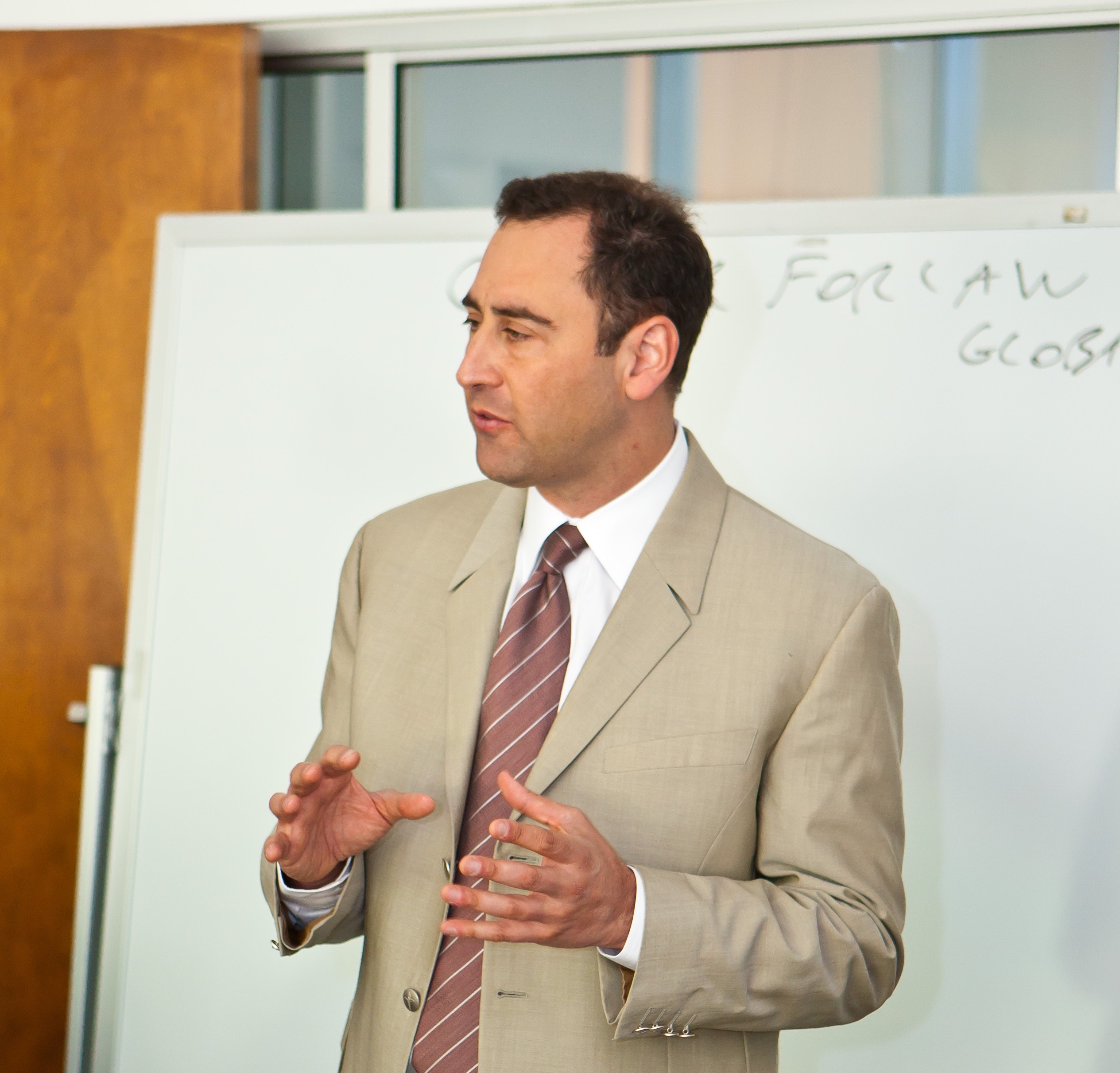Center wants to expand understanding of 'moral injury' to audience beyond military

Last year the Center on the Future of War announced Pulitzer Prize-winning journalist David Wood as an ASU Future of War Senior Fellow at New America, who introduced the term “moral injury” to the public lexicon through his 2016 book, “What Have We Done: The Moral Injury of Our Longest Wars.”
This year the center is taking it a step further by making the term — which means a violation of one’s sense of right or wrong in battlefield conflicts or military environments — the focus of an international conference next week.
“Moral Injury: Toward an Internal Perspective” takes place in Washington, D.C., on Nov. 13 and will feature deans, directors, lecturers and experts from the United States, England and Australia, all in an effort to deepen their capacity to make sense of the experience of armed conflict.
To give more clarity to this issue and what the conference will cover, ASU Now turned to Daniel Rothenberg, a professor of practice who co-directs the center with CNN senior analyst and ASU faculty member Peter Bergen.
Question: How do moral injury and post-traumatic stress disorder (PTSD) differ? They seem similar.
Answer: Moral injury differs from PTSD in that it isn't associated with a physical trauma but is rather a debilitating psychological or spiritual injury resulting from the transgression of deeply held moral beliefs and expectations. Importantly, the therapies that have been developed for PTSD generally do not appear to work for moral injury, which in itself is a good reason to understand the differences between the two conditions.
Understanding the differences is complicated by the fact that occasionally the same incident gives rise to both conditions, making both treatment and diagnosis difficult. In many cases, however, moral injury often arises from a long sequence of events or experiences that do not give rise to PTSD symptoms. All this taken into account, however, it is still the case that moral injury is still being researched and defined.
Daniel Rothenberg
Q: What is your hope with this conference?
A: We hope our conference will build upon David Wood's book; indeed, he helpfully provided a chapter for the report, “Moral Injury: Towards an International Perspective,” that we are releasing at our Nov. 13 conference. Because moral injury is so destructive of veterans, their families, and the communities that support them, we hope that our ongoing focus on this category of injury will encourage continued progress in the identification and treatment of individuals who may have suffered such an injury.
In addition, this conference and our report both introduce for the first time an explicit multicultural approach to moral injury, which we think is a substantial contribution to research, analysis and mitigation in this area. That's because the conference and the report are products of the PLuS Alliance, which includes ASU, University of New South Wales and King's College London.
Q: In addition to military personnel, you are making an attempt to introduce the term to medical and health-care workers, theologians, journalists and uninformed personnel and peacekeepers in other parts of the world. Why is it important for them to understand the term going forward?
A: Moral injury as we are approaching it often occurs on the battlefield, but its effects are more frequently felt upon the return of the injured warrior to his or her family, and community, and they can last for many years, even many decades, as experience with Vietnam War veterans shows.
Moreover, the phenomenon is a complex one and extends beyond the boundary of any single domain, and treatment may well involve not just traditional health-care workers, but spiritual and theological leaders, and even the community as a whole. This explains the broad collection of disciplines and discourses that we are encouraging to coalesce into a community of practitioners who can effectively address the many ways in which moral injury may be expressed.
Q: What will be some of the highlights of this conference?
A: Among the highlights will be the video presentation of Dr. Michael Crow, who will discuss the importance of addressing moral injury, and the particular strengths that the PLuS Alliance brings to such a complex task. The panel that forms the core of the conference includes a number of luminaries in this growing field, including David Wood, who won a Pulitzer Prize for his reporting on moral injury in 2012 and the 2017 Dayton Literary Peace Prize for Nonfiction for his book on the topic; Ed Barrett, director of research at the U.S. Naval Academy's Stockdale Center for Ethical Leadership; William P. Nash, director of psychological health, United States Marine Corps; and Brad Allenby, Lincoln Professor of Engineering and Ethics and President's Professor, at ASU.
Q: What is the center’s ultimate hope when it comes to use and understanding of moral injury?
A: We hope that the Moral Injury Initiative, which will be under the Center on the Future of War, will become an important contributor to better understanding moral injury, and to identifying ways in which it can be prevented, and treated when it does occur.
Top photo courtesy of Pixabay
More Local, national and global affairs

Department of State and ASU host Government Leaders Forum to strengthen semiconductor supply chains
By Emilia FrancoAs the global demand for semiconductors accelerates — with projections reaching $1 trillion by 2030 — Arizona State University, in partnership with the U.S. Department of State,…

Environmental writer, ER doctor address violence, climate change, more at sold-out ASU event
“The difficulty of understanding the consequences of heat is amplified by conventional notions of what it means to be hot. In pop culture, hot is sexy, hot is cool, hot is new…” That excerpt was…

Thunderbird at ASU, AUK student appointed as Ukraine’s deputy minister of education and science
Nadiia Kuzmychova, a student in the Master of Leadership and Management (MLM) program at Thunderbird School of Global Management at Arizona State University and the American University…
